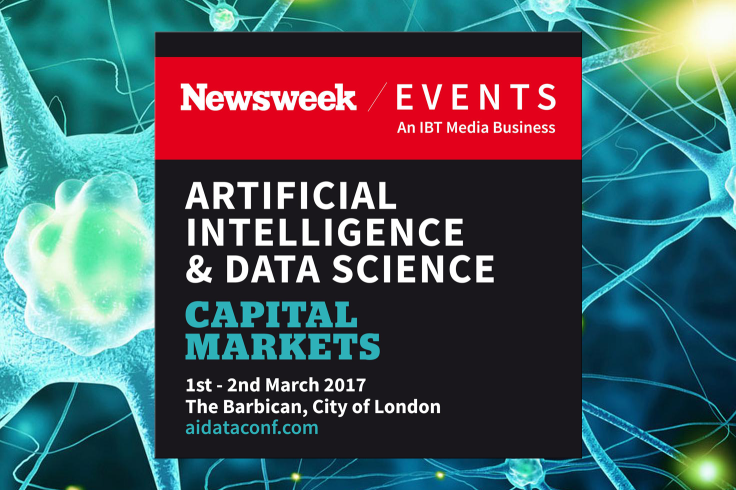IBT Media's prestigious financial data science event launches in City of London
IBTimes UK and Newsweek host their first Data Science in Capital Markets event in the London.
International Business Times and Newsweek host their first Data Science in Capital Markets event this week (1st and 2nd March) at the Barbican in the City of London. A global audience of data scientists, quantitative analysts, and software engineers from hedge funds and investment banks are attending.
Speakers include Wes McKinney, the open source Pandas libraries guru; Professor David Hand, chief scientific advisor at Winton; and Professor Steve Roberts director of the Oxford-Man Institute.
The first day will dive deep into the brave new world of exotic data capture; how can trillions of data points taken from satellite images, logistics data and internet of things connectivity be translated into valuable trades?
The second day will look in detail at data science infrastructure tools, including work being done by Two Sigma's McKinney in Python and solving data transfer interoperability with Apache Arrow.
McKinney told IBTimesUK: "You would be amazed at the number of different data input formats that you see in the wild; over the course of years we have had to evolve the tools in Pandas to be able to accommodate the needs of hundreds of thousands of users around the world."

The conference will also look more broadly at current advancements in artificial intelligence and machine learning and look at how these can be applied to a capital markets use case.
Financial data modelling is beset by a low signal to noise ratio and the data itself is non-stationary involving correlations between stocks, bonds and other instruments.
Anthony Ledford, Man AHL's chief scientist, told IBTimesUK: "In that kind of data environment, where the 'grand truth' is changing, you can't just have a model that expects some static view, like learning the characteristics of a cat.
"Also, it's easy to look at historical data and to decompose it and say this is related to that, and do that retrospectively. But if you've actually got to make a snapshot based on the data you've got today and understand what predictability there is about what happens next, that is a much harder problem."
More on the Data Science in Capital Markets event
Hedge fund firm Man AHL cuts through the noise around machine learning
Hedge Fund Two Sigma's Wes McKinney talks about big data and interoperability
The fintech approach to data science and machine learning
Thinking about selling your data? Meet the outsourced data set scouts for the hedge fund industry
Machine Learning: How finance can catch up with other intelligent real-time systems
© Copyright IBTimes 2025. All rights reserved.






















